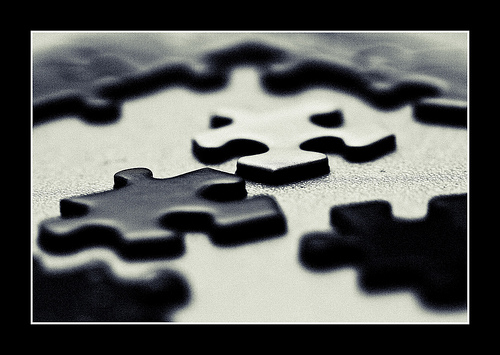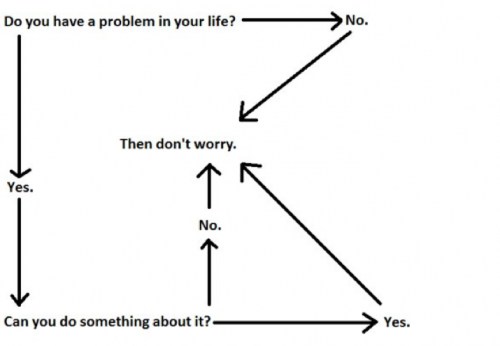“The unexamined life is not worth living” – Socrates
What does it mean to be a successful person?
There are many of us who consider our lives to be a success, but in what measures are we considering ourselves successful? Is it how many material things that we own? Is it the goals we have achieved in our lives?
Is it by how many so called friends we have? Or is it about creating a loving family and a beautifully connected network of loved ones within our lives?
Certainly these layers of living are successes in their own right and can contribute to living a fulfilling and rewarding life, yet are they real success? When it comes to the acquisition of money and material items it’s clear that it doesn’t guarantee that we’re happy or make us a good person. Neither does achieving goals and creating a loving family. With all these successes we can still live dysfunctional and unhealthy existences.
So what, then, is real success?
It exists in the state of our mind. This includes whether we truly know ourselves such as the thoughts we entertain, the feelings we have and how we translate those thoughts and feelings into action. What then makes a successful mind?
It’s facing our internal truths and lies, uncovering our hypocrisies and growing from them. Accepting and embracing our contradictions is important to understand our current selves. As I’ve said for many years now: everyone’s a hypocrite and if you don’t agree you’re a liar as well.
For example, if we treat others in a way that we wouldn’t want them to treat us then we’re a hypocrite. Moreover, if we don’t face our truths and lies but expect others to do so then we’re also a hypocrite. Prejudices and bigotries are hypocritical. Even if our hypocrisies are only minor, they exist. Even simply needing to learn a lesson for growth—which will always be a goal within our journey of life—is representational of a hypocrisy that we need to overcome.
There’s nothing wrong with hypocritically not being something that we’re yet to become—it should be embraced and not suppressed as it speeds up the efficiency of our development.
Living with the virtues in mind and heart is integral as a guide on how we should treat ourselves and therefore others. If we don’t embrace others for all their strengths and weaknesses then we don’t embrace ourselves. Virtuous thinking, feeling and action (the v-three) are paramount to success. Only we can know our thoughts so it’s only us that can understand if they are functional, productive and beneficial or whether they’re clouded with negative patterns of fear and hate. If we continue to live with the latter then I’m sure that we’d agree that we’re not living a truly successful life.
“To be a true success is to be virtuous.”~ unknown
Overcoming our hypocrisies—as well as transcending our fears and hates— is dependent on being open to change. Once the brain stops developing at around 25 years of age it becomes a greater challenge to change both physically and psychologically. It takes pure courage, strength and will. The majority of adults reside in their comfortable and secure place which in effect slows their development because they resist their necessary change. That resistance is just another fear – the fear of the unknown or the fear of insecurity – and it is illogical because repeating cycles of pain and suffering without striving to develop ourselves is simply self-sabotage.
To achieve true success we need to achieve true contentment. We live on a roller-coaster of emotional highs and lows and those temporary emotional states are considered as either happy or unhappy moments in life. Throughout this ride we experience factors outside of us which inevitably influence, but not determine, how we emotionally feel.
For example, if somebody close to us dies then we’d experience that as a sad event. Even if you wholly celebrate the life of that person instead of mourning their death there are still layers of grief and sadness. Nobody is going to be happy about a loved one dying.
In contrast, if we achieve a goal that we’ve always wanted we’re going to be extremely happy with that outcome. No one is going to be sad about achieving a lifelong desire.
The roller-coaster of life obviously has many layers of sadness and happiness all in the one moment. We could be happy about one thing and sad about another at the same time. This is an innate aspect of the human experience which we can’t escape. We have an ego, and that ego is an effective tool to maintain the boundaries between the physical self and the rest of reality. As a human we need that ego because it helps us to survive, to grow, and to love. Yet throughout this roller-coaster ride there is a characteristic that can be maintained in a stable and consistent way. That quality is contentment.
Contentment is the capacity to accept and embrace every part of every moment, no matter if it is happy or sad.
Have you ever wondered how people living in developing nations who are exposed to poverty, war, starvation, genocide etc., could possibly be happy? How could it be that somebody who has been exposed to so much suffering in their lives is wearing a bright smile? It’s potentially because they v-three, which facilitates their contentment. They might simply be grateful for the good that is in their lives. They may even align to a faith, and even if that faith is considered bullshit by another tradition, it fills them with hope and love. In essence, they take care of their mind and heart which enables their happiness.
In the first world we have insignificant problems that can significantly impact how happy and sad we are in each moment. These problems are usually quite small in the scheme of how bad things can get. They’re also usually associated with the expectations a person has of each moment and the fact that they weren’t realised. Yet there still are justifiable experiences which can significantly affect our happiness. That’s when we can choose to access an internal contentment that can withstand even the greatest roller-coaster low.
“The only person who will ever understand whether you’re truly successful or not, is yourself”
Contentment can be based in many ideas, beliefs and philosophies. It’s really up to each individual. Faith is actually quite powerful because it easily facilitates contentment. Many reason junkies look down upon faith because it is ‘unreasonable’, but ensuring a contented mind and heart seems bloody reasonable to me. Just because people have faith it doesn’t mean its a faith in a specific concept of God. I know many people who don’t put any parameters around their faith, they just believe in something bigger than their separate ego self. See my article here called The Orchestra of Reality.
If you don’t resonate with the idea of faith then you can easily decide on something else. As an example: “we’re free to live and what we have lived has been awesome so everything amazing from now is just a bonus”. Use your imagination and your core beliefs. Just remember that you need to lock in a fundamental concept that you recall every time it’s necessary to functionally process the lows and highs of the roller-coaster ride.
This also ensures our emotional balance because the lows aren’t as low and the highs are understood as fleeting. At the very least, the lows are easier to leave behind in our wake of contentment. Maintaining a good balance is one of the universal keys to the door of success—balance your male and female energies (i.e. testosterone and estrogen), your work and play, your intellect and emotion, your physical and mental health etc.
Any worry is unhealthy. Stress kills, as they say. Although there is good and bad stress, or better said beneficial and harmful stress, any excessive stress is bad for our health and inhibits true success.
If we can’t accept and embrace the uncertainty of an outcome or a less than desirable experience in our life then we’re plainly hurting ourselves.
Do we project our expectations of our future in a way that we feel as stress? Not really successful is it. There’s an old flowchart that really captures how useless worry is—it starts with: do you have a problem in your life? No leads to “then why worry.” Yes leads to: can you do something about it? As you may have guessed, both Yes and No lead to “then why worry.”
The people around us may glimpse an understanding of how successful we are through our balanced nature, how content we appear, what we say and how we act.
But they’ll never truly know, not like we can truly know. There are many people who go through their entire lives lying to others and pretending like they’re a success when they’re characterised by anger and hardly even close to finding a sense of true contentment in their lives. They appear successful but they’re not. They might have achieved the other successes mentioned above, but not yet real success.
“Holding on to anger is like grasping a hot coal with the intent of throwing it at someone else; you are the one who gets burned” – Buddha
They may also lie to themselves for as long as they live and sit in a place of victim-hood, dysfunction and suffering which inhibits them from truly living successfully. They might even be a blamist i.e. they blame others for how they feel. They may be holding coals such as bitterness, jealousy, condemnation, resentment, conceit, judgement or any of the other anti-virtues.
Unbelievably, many of these people will never even recognise that they need to take ownership of what they think and how they feel and will never face their true selves.
True success also includes embracing our present moment in truth. If we’re still dealing with past lessons that we should have learned by now then we’re not truly living in the present and therefore not yet truly successful. Those lessons will keep popping up over and over again so we should deal with them immediately otherwise they will be shadows that haunt us for our entire lives.
Once we uncover and overcome all the lessons of our past (and release our expectations of the future) then we’re fully embracing each new moment with all the challenges and benefits that it can bring. That is a true form of success.
To summarise, real success in life is embracing our present with a capacity to change, contentment and all the other states of the v-three. It’s also having a true understanding of ourselves, including our hypocrisies, as well as our strengths and weaknesses. It’s also important not to despair if we haven’t yet achieved these things because the simple awareness of it means that we’re on our path to real success; we just need to commit to it.
That path is a life long journey and it is vital to recognise that it will never end—real success is an ongoing synchronisation to our unfolding experience. Ultimately, to have a real crack at life we must silence our mind, heal our heart and live the v-three.
“If you want to have real success, stop trying to convince everyone else and start convincing yourself, because it’s you that has to put up with yourself for the rest of your life.”
Love elephant and want to go steady?
Sign up for our (curated) daily and weekly newsletters!
Editor: Renée Picard
Image: Flickr
 Share on bsky
Share on bsky







Read 0 comments and reply